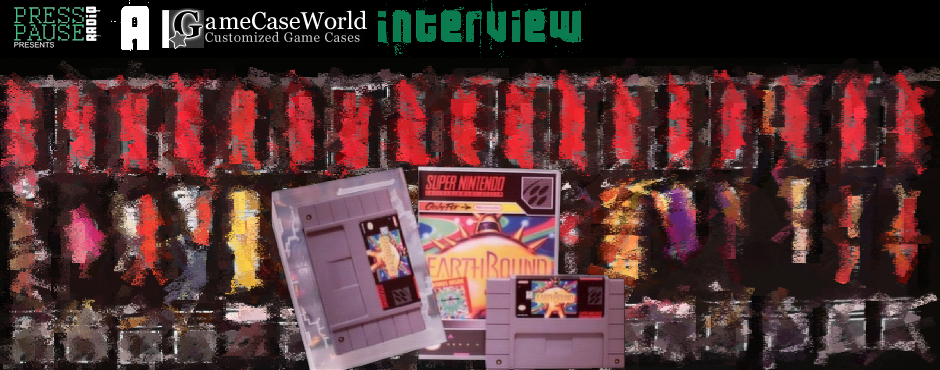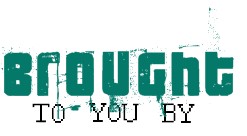Vintage Play: Game Case World Interview

Some of us display game collections on shelves, while others prefer shutting them away from the world (it’s for their own good, dammit). Luckily, for both overprotective and negligent hoarders, there’s a better balance provided by Game Case World.
Managed by Jason and Paula in Hammond, Oregon, Game Case World started with a simple agenda: protect your precious game collection -- both cartridges and discs -- without detracting from dazzling appearances on media shelves. They also adhere to an excellent level of authenticity, so you’ll avoid horrific label maker designs one expects from thrift shops and games stores that lost the original cases. Sure, they try their best, but collectors are always looking for more.
Press Pause Radio had an opportunity to chat with Jason from Game Case world, who discussed his reasons for getting started, how they manage their operation, and what to expect in the near future.
* * *
Sean: What’s an average day like in the realm of Game Case World?
Jason: It really depends, but most days the majority of work we do goes into shipping orders people place and designing cases they request. We get lots of people who ask questions, both through the contact forum on our website or on eBay, so lots of time goes into answering questions. We have a graphics artist who does work for us; she does most of the custom artwork you see on the cases themselves.

We’re always trying to expand our product line. We hope to bring it up to speed to where we have a case for every game that was released. We’ve done some cases for games that weren’t released in North America, which are usually by request -- retranslated JRPG’s and things like that. We’re hoping to offer a case for every game that was released, so people with complete collections of these cartridges will have complete collections of cases to store them in.
Sean: So how did all of this start in the first place?
Jason: We looked at our own [video game] shelf, and thought “It sure would be nice if there were a way to store these in a more presentable manner. “ I’m getting up there (kind of) in age, not really “old,” but old enough where I have my own place, family and all of that. When you bring guests over to your house and they see this jumbled mess of cartridges (which I’m sure lots of people can relate to), it’s just not as nice. We wanted something to improve the atmosphere, something that gave your collection more of a library look. When you go to the library, you see books on the shelf, and everything is uniform for the most part; that’s kind of what we were going for.
So we had to purchase in really large quantities. We had a lot left over, and thought “now what?” We could have just waited (my collection’s always growing), but I thought it would take me years to use all those cases. So I wondered if anyone else would be interested in buying these. We put them up for sale for one at a time and started really small. People were really interested and really excited about it, and it just kept growing from there.
Sean: What were some of the greatest challenges you had after that?
Jason: The biggest challenge was getting everything together from the manufacturers, plastics companies, and box companies – the logistics of things. It actually took us three months to figure out what kind of paper to use in the inserts of the cases, and figure out what closely matched the original DVD style artwork and things like that. That was a pretty big challenge for us, something you’d think is simple, but it’s a lot harder than that – you need to have the right weight of paper and the right absorbency of ink.

We needed to figure out how to get products do them, and how to make things look as good as possible.
Sean: I’ve noticed you really go out of your way for the customer. I recall one instance where the owner of Japanese Famicom cartridges said your cases seemed too loose, and you experimented in order to find a solution. How was that experience overall?
Jason: That’s one of the fun things about my job. I didn’t have any famicom cartridges of my own, so we had to buy one just to see how it fit inside the case. I knew the dimensions (which is easy to find), but to actually get one, put into one of our cases and figure out how to make it fit takes time. We’re always coming up with new ideas, new innovations, and receive lots of customer requests saying “I want my Japanese Rockman games to fit in these cases.” We may not know much about it, but we’ll try and see what we can do.
Sean: Any other retro case plans in the works?
Jason: The next big case we’re doing is for the Sega Genesis, because there are a ton of Sega collectors out there. We’ve been working on that for a while, but we want to get a quite a few cases ready to go before we launch that product line. We’re also currently looking to expand our N64 selection, and probably have about 30-40 cases we’re adding on in the next few weeks.
Sean: So which console has your biggest collection of titles?
Jason: I haven’t really looked, but when we first started and compiled our database online, we knew. I think our Game Boy Advance collection has the most titles, but we definitely sell more SNES than anything else. For the NES we’ve got cases for about half of the US released titles available. We try to get as good of a selection as we can.
Sean: Any other big projects you’d like to share with the world?
Jason: Last September, we attended the Portland Retro gaming expo. That was kind of our big project for the past year. We haven’t come up with anything huge for 2012 other than to keep doing what we’re doing.
* * *
As of right now, Game Case World offers designs fit for Dreamcast, Sega CD, NES, SNES, N64, Game Boy Color, Game Boy Advance, Virtual Boy, and PlayStation games. Additional information on graphics, production, and prices (most are around $9.99) can be found on their website (www.gamecaseworld.com). You can also find some neat case walkthrough previews and "how we customize them" videos on their YouTube channel.
Full interview: PPR 53 (starting at 1:52:25)
 Press Pause Radio's Vintage Play focuses on the retro age of video games. Whether it’s special podcasts, editorial, or even reviews, when you see the mark of Vintage Play, you can expect a trip back to the time of plastic cartridges and CD-ROMs (which makes us realize we’re old as shit).
Press Pause Radio's Vintage Play focuses on the retro age of video games. Whether it’s special podcasts, editorial, or even reviews, when you see the mark of Vintage Play, you can expect a trip back to the time of plastic cartridges and CD-ROMs (which makes us realize we’re old as shit).
 Game Case World,
Game Case World,  NES,
NES,  Playstation,
Playstation,  SNES,
SNES,  Vintage Play | in
Vintage Play | in  Interviews
Interviews 









